MercoPress. South Atlantic News Agency
Tag: economy
-
Monday, February 4th 2019 - 08:50 UTC
Brazilian industrial output up 1.1% last year compared to 2017
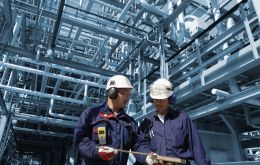
Brazil's industrial output increased 1.1% in 2018, the Brazilian Institute of Geography and Statistics (IBGE) announced. According to IBGE, though the annual figures were positive, the industrial sector grew at a slower pace than it registered in 2017, when production increased 2.5%.
-
Saturday, February 2nd 2019 - 08:59 UTC
Argentine central bank “ready” to counter surprises ahead of this year's presidential election
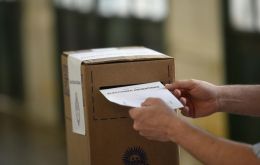
Argentina’s central bank has sufficient dollar firepower to deal with a spike in demand for the greenback if uncertainty over the country’s upcoming presidential election prompts another run on the peso, bank sources said on Friday.
-
Thursday, January 31st 2019 - 09:38 UTC
US private payrolls increased in January, but the housing market is down

United States private payrolls increased solidly in January, pointing to sustained labor market strength despite a recent easing in consumer and business confidence that has suggested a loss of momentum in the economy. The strong hiring shown in the ADP National Employment Report on Wednesday also suggested there had been minimal impact on the labor market from the just-ended 35-day partial shutdown of the federal government.
-
Thursday, January 31st 2019 - 09:22 UTC
German economy threatened by a chaotic Brexit, warns Berlin's economy minister
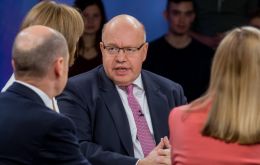
The clouds darkened over Europe's slowing economy on Wednesday as the German government slashed its growth forecast and said concerns about a chaotic Brexit and trade tensions were holding back the continent's powerhouse. Germany's Economy Ministry said Wednesday it was cutting its 2018 forecast to 1% from 1.8% in its previous outlook issued last fall.
-
Thursday, January 31st 2019 - 09:15 UTC
Federal Reserve adopts “wait and see” policy. Economy facing contradictory picture of crosscurrents, says Powell
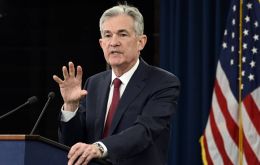
The Federal Reserve on Wednesday signaled its three-year-drive to tighten monetary policy may be at an end amid a suddenly cloudy outlook for the U.S. economy due to global headwinds and impasses over trade and government budget negotiations.
-
Monday, January 21st 2019 - 09:05 UTC
China's economy expands at its slowest rate since 1990
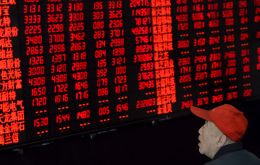
China's economy continued to slow in the last quarter of 2018, official figures showed, stoking fears about the impact on the global economy. In the three months to December, the economy grew 6.4% from a year earlier, down from 6.5% in the previous quarter. For the full year China expanded at 6.6%, its slowest rate since 1990.
-
Thursday, January 17th 2019 - 09:08 UTC
China injects US$ 83bn to the financial system hoping to prop a declining economy
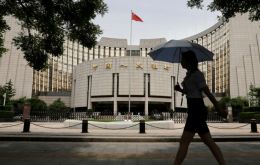
China’s central bank injected a record US$ 83 billion into the country’s financial system on Wednesday, seeking to avoid a cash crunch that would put further pressure on the weakening economy. China’s policymakers are pledging to step up stimulus measures this year and do more to protect jobs as economic growth cools to 28-year lows.
-
Tuesday, January 15th 2019 - 09:08 UTC
Macri flies to Brazil for a first face to face meeting with Bolsonaro
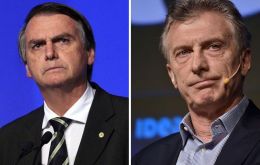
Argentine President Mauricio Macri will hold talks with his new Brazilian counterpart Jair Bolsonaro on Wednesday likely to center on consolidating trade ties between South America's two biggest economies, officials said. Battling recession and seeking re-election this year, Macri needs to boost Buenos Aires's side of a steep trade imbalance with its main trading partner.
-
Tuesday, January 15th 2019 - 08:36 UTC
Bolsonaro pensions reforms aim to save some US$ 270bn in ten years
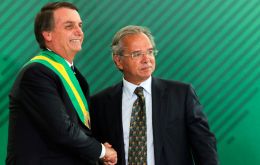
Far-right Brazilian president Jair Bolsonaro’s new government wants to save 1 trillion Rreais (some US$ 269.48 billion) over 10 years via pension reforms economists say are vital to undo the growing fiscal deficit, a Brazilian newspaper reported on Monday.
-
Wednesday, January 9th 2019 - 14:49 UTC
Brazil's Bovespa closes above 92.000 points for the first time ever
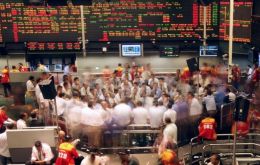
Latin American stocks in the region's main markets closed on Tuesday at new highs on the positive outlook for the ongoing US/China trade talks in Beijing. Brazil's Bovespa index ended trading above 92,000 points for the first time ever after hitting several record highs last week.
